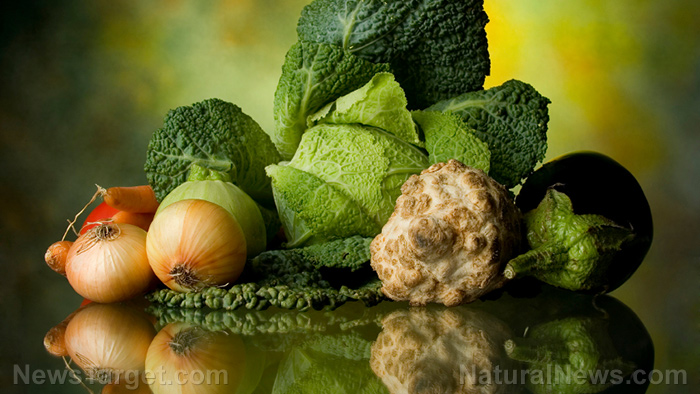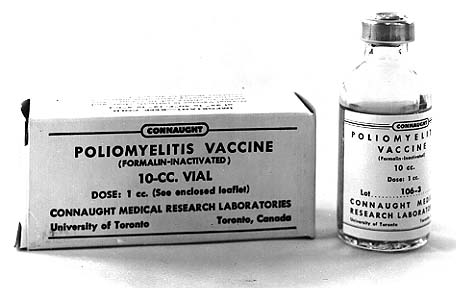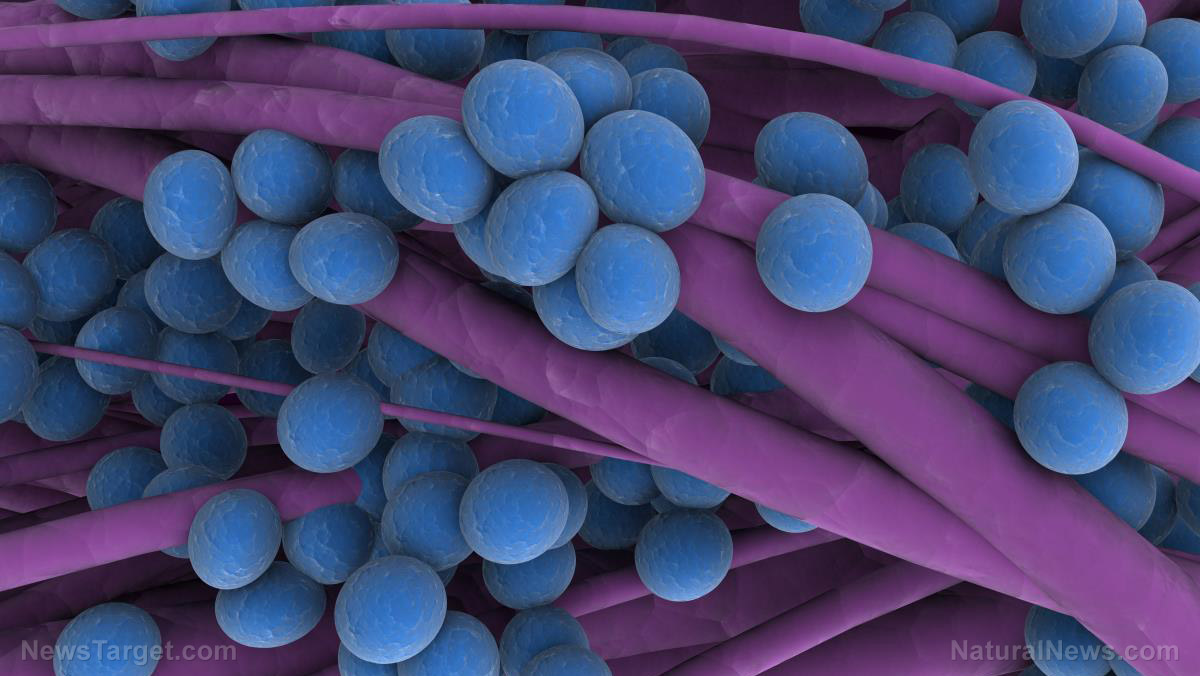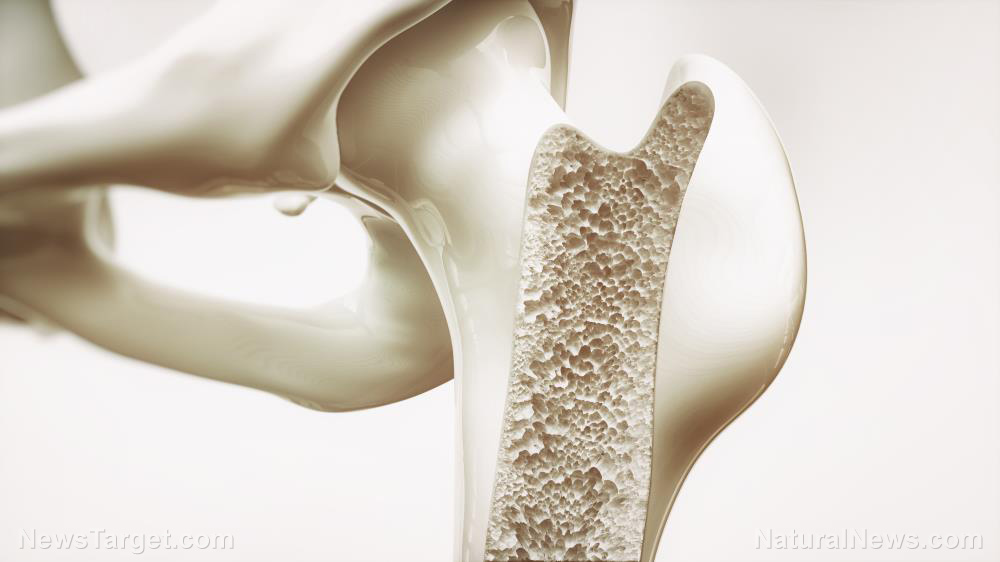Scientific data link glutathione deficiency to diseases: Daily supplementation may help prevent degenerative diseases
04/15/2020 / By Evangelyn Rodriguez

Glutathione is an antioxidant that’s naturally present inside the body. It is produced by cells in the liver and consists of three amino acids, namely, cysteine, glutamine and glycine.
Glutathione plays several important roles that affect human health and longevity. As an antioxidant, it enhances immune function and protects cells from damage caused by oxidative stress. Glutathione also neutralizes harmful toxins and helps detoxify the body.
Because of its biological activities, scientists believe that having adequate glutathione levels is one of the keys to maintaining good health and preventing disease. In fact, numerous studies have linked glutathione deficiency to chronic diseases, such as heart disease, diabetes and cancer.
Low levels of glutathione are associated with degenerative diseases
Although glutathione can be produced by the body, its levels naturally decrease as people age. This decline weakens the body’s natural defenses and increases a person’s risk of degenerative diseases.
On the other hand, several factors can cause a person to have low levels of glutathione. These include exposure to environmental toxins, chronic stress and poor nutrition.
The following diseases have been linked to glutathione deficiency by numerous studies:
Cardiovascular disease and cardiac abnormalities
According to an article published in the journal Stroke, low plasma glutathione levels is a risk factor for cardiovascular disease (CVD). Researchers at Kyushu University in Japan studied 134 CVD patients and found that those who suffered from cerebral infarction (stroke) or hemorrhage had significantly lower glutathione levels than age- and sex-matched healthy adults.
In addition, the researchers observed that systolic and diastolic blood pressure decreased with increasing glutathione levels. Similarly, the risk of CVD also decreased as glutathione levels went up. The researchers noted the same inverse proportion between glutathione levels and the frequency of alcohol consumption, suggesting that drinking is another factor that can reduce glutathione levels and increase the risk of CVD.
In another study, which appeared in the journal PLoS ONE, French researchers discovered that the severity of structural damage to the heart is related to a depletion in blood glutathione. In particular, they noticed that coronary artery disease patients with left ventricular dysfunction had severely reduced glutathione levels. This suggests that the antioxidant can be used as a biomarker for structural cardiac abnormalities to detect asymptomatic patients.
Type 2 diabetes and microvascular complications
In a recent study, researchers from Jamaica and the U.S. recruited 16 patients with Type 2 diabetes and measured the rates of their glutathione synthesis. They found that, compared with healthy age- and sex-matched controls, diabetics had lower concentrations of glutathione. The researchers also noticed that this difference was even greater when the patients also suffer from microvascular complications, such as diabetic retinopathy, nephropathy or neuropathy. These findings suggest that patients with Type 2 diabetes also suffer from glutathione deficiency, especially those who have developed diabetic complications.
Cancer progression and chemo-resistance
Having high glutathione levels is said to increase the body’s antioxidant capacity and resistance to oxidative stress, which is implicated in the progression of cancer. Oxidative stress refers to an imbalance between free radicals and antioxidants inside the body. In contrast, a deficiency of glutathione increases the susceptibility of cells to oxidative stress, which can cause DNA damage and trigger the development of cancer. However, research also suggests that excess glutathione can make tumors more resistant to chemotherapeutic drugs, indicating that glutathione has both protective and pathogenic roles when it comes to cancer.
Natural ways of increasing your glutathione levels
Glutathione, the “master antioxidant,” can be obtained from a variety of food sources. It is also available as a nutritional supplement and can be found in capsule or liquid forms.
Here are four natural ways of boosting your glutathione levels:
- Eat sulfur-rich foods — Eating foods that contain N-acetylcysteine, a sulfur-containing glutathione precursor, can help increase your body’s glutathione production. Alliums like garlic and onion, as well as cruciferous vegetables like broccoli, cabbage and Brussels sprouts, are rich in glutathione.
- Consume more dairy products — Dairy products like raw milk contain beta-casein, a protein that can boost glutathione production. Research has also found that higher dairy consumption is linked to higher glutathione concentrations in the brains of older adults.
- Consume more whey protein — Whey protein contains high amounts of cysteine, an amino acid component of glutathione. Studies suggest that whey protein can also increase glutathione levels in the body.
- Get more exercise — Regular physical activity can increase glutathione concentrations and reduce oxidative stress as a consequence. This is one of the many reasons why health experts recommend regular exercise for the maintenance of good health.
Glutathione is an important antioxidant that boosts immune function and prevents chronic diseases. To maintain healthy glutathione levels, add foods that contain this antioxidant or its precursors to your daily diet. Other excellent food sources of glutathione include asparagus, potatoes, peppers, carrots, avocados, squash, spinach and melons.
Sources include:
Tagged Under: #nutrition, antioxidants, cardiovascular disease, chemo, Glutathione, glutathione deficiency, heart disease, heart health, natural medicine, nutrients, prevent diabetes, prevention, research, supplements, Type 2 Diabetes



















